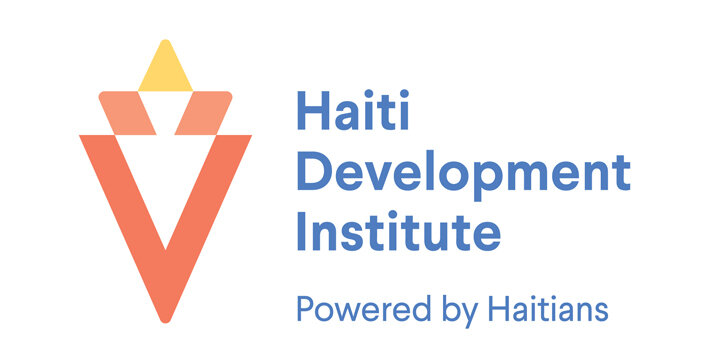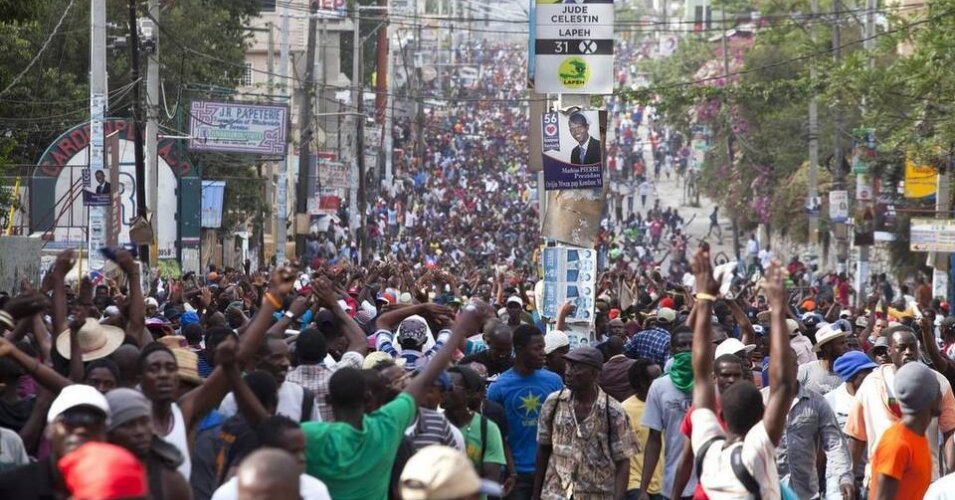HDI’s Insights on 2019’s Lockdown
2019 was a very difficult year for Haiti, and undeniably discouraging for those committed to helping Haiti’s people develop a more peaceful, secure and inclusive country. HDI is clear-eyed about the challenges and the long road ahead. But we are still energized and purposeful. Why? Because we know what the right road is.
All who follow Haiti’s development efforts know that extensive protests broke out throughout the year. Mass protests followed the exposure of grand corruption under the PetroCaribe oil/aid program involving a large portion of the country’s politicians and business elite, and the failure of the country’s political institutions to take action to prosecute anyone or undertake reforms. Opposition political party leaders co-opted the people’s protest movement to seek the resignation of the president. Rival political parties and private sector entities financed gangs to erect, remove and re-erect barricades and roadblocks in service of their political game of chicken. This placed much of the country under “lock down” for months.
The “lock” imposed tremendous suffering on vast swaths of the population, who were prevented from safe travel to schools, work, fields, markets, and clinics. An additional tragic consequence of the fueling of gangs has been a huge spike in lawlessness and violence, which the government’s weak security forces are not capable of controlling.
The political impasse has proved remarkably resilient. The people’s protest has not coalesced into an effective coalition or consensus vision for what should come next. But increasing intolerance for corruption and impunity, combined with anger and desperation over the impacts of the “lock”, have generated an unprecedented level of discontent. There is a growing sense that a line has been crossed and there should be no going back to what is fundamentally a broken system.
However, the people involved in the conversations about what change should look like are the same old people running things, so whatever they come out with appears likely to leave power in the same group of hands. For now.
What Does It Mean and What Can Be Done
Good governance is an indispensable ingredient for inclusive and sustainable development. Yet an accountable, responsive and capable government in Haiti seems eternally elusive...
To get the government they deserve, the people of Haiti will have to successfully exert influence on democratic reform processes. To increase the chances of having a real national dialogue that can result in an improved governing system and social contract, private and official development assistance providers must invest in Haitian civil society; in developing a new type of citizen.
Decades of chronic marginalization have left many, particularly in the countryside, with little sense of citizenship or stake in either national or local governance in Haiti. In addition, Haiti’s exclusionary society is beset by divisions based on class, creed, ethnicity, place of birth, education, ability and gender. The youth are increasingly disillusioned by the lack of opportunity and hope in the country. Philanthropy could support a concerted campaign to address and break down barriers in society and build norms around good governance, leadership, ethics, equity and inclusion. Such a campaign could engage people throughout the countryside in thinking about how they can build a society in which they feel a sense of belonging and ownership. It would aim to foster a sense of trust and spirit of collaboration rooted in equity and Haitian culture.
Building citizens requires direct investment in people, not only provision of services to people. Private and official development assistance providers should invest in building leaders, communities and institutions. The best way to do this is to put money into communities through local organizations. Philanthropy can help people create small businesses that serve local markets and solve local needs. It can support the development of regional processing facilities. Philanthropy must make more investments in capacity building, community engagement and institution building. Support to community planning and organizing can help create engaged and interested citizens with the tools, skills and platforms to build institutions and begin to craft the communities they want to leave to their children.
HDI was created to help connect philanthropists to opportunities like these to support systemic change.

